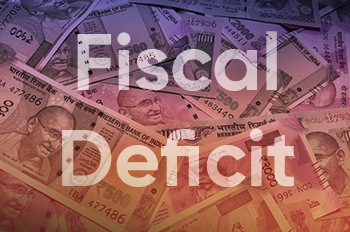Nepal has received foreign investment from 57 different countries, with India leading the pack with an FDI stock of NPR 88.59 billion…reports Asian Lite News
Nepal has been attracting foreign direct investment (FDI) from various countries. Among them, India stands out as the largest source of FDI for Nepal, contributing significantly to the country’s economic growth.
However, there’s a notable gap between approved FDI and actual net FDI inflows in Nepal, as revealed by the latest report unveiled by Nepal Rastra Bank, the central bank of Nepal, on “FDI in Nepal, 2021-22.”
According to the survey report, as of mid-July 2022, Nepal has received foreign investment from 57 different countries, with India leading the pack with an FDI stock of NPR 88.59 billion.
This is followed by China (NPR 33.34 billion), Ireland (NPR 20.9 billion), Singapore (NPR 16.1 billion), and Saint Kitts and Nevis (NPR 15.1 billion).
Nepalese law permits foreign investment in a wide range of activities, primarily in industrial sectors. However, foreign investment is not allowed in trading activities.
Sectors open for investment include electricity, manufacturing, financial and insurance services, accommodation and food services, information and communication, education, human health and social work, construction, agriculture, forestry, fishing, mining, and others.
Indian investors will soon be able to make foreign investment in Nepal via the Automatic Route, as per the amendment of the Foreign Investment and Technology Transfer Regulation, 2021.
The Automatic Route is not operational yet but is expected to streamline the investment process once implemented.
The FDI regime in Nepal includes both approval-based mechanisms and automatic approval mechanisms.
The Department of Industry (DOI) approves all foreign investments, while the Investment Board Nepal (IBN) handles hydropower projects over 200 MW capacity. The Nepal Rastra Bank (NRB) regulates approval and notification for the inflow of foreign investment.
The statutory timeline for providing approval for foreign investment from both DOI and NRB is 22 days. However, it generally takes about six to eight weeks to obtain approval from both departments and complete the acquisition process.
Indian banks and financial institutions can invest in Nepal’s financial sector but require prior approval from the NRB.
Indian investors can establish industries in Special Economic Zones (SEZs) with certain criteria, including export obligations.
Indian investors can provide loans to local companies in Nepal after obtaining approval from the NRB. The interest rate and ceiling for loan investments depend on the nature of the lender.
Indian investors can establish businesses in Nepal by incorporating a new company, investing in an existing company, or registering a branch office.
Indian investors cannot directly own land in Nepal but can own housing units. Indian nationals do not require work permits in Nepal but need to be registered with the Department of Labor.
There are several major customs points between Nepal and India, facilitating bilateral and third-country trade. Nepal has dry ports and Integrated Check Posts (ICPs) for trade facilitation.
Nepal and India have cemented a long-term agreement aiming to facilitate the export of 10,000 megawatts of electricity from Nepal to India over the next decade.
Nepal and India have a Double Tax Avoidance Treaty (DTAA) in place to avoid double taxation and prevent fiscal evasion.
Indian investors are allowed to repatriate earnings through various channels, including dividends, profits, royalties, and lease rents.
With these guidelines and insights, Indian investors can navigate the investment landscape in Nepal effectively, tapping into its diverse opportunities and contributing to the country’s economic growth. (ANI)
ALSO READ: Indian Startups Bag $222.7M This Week














